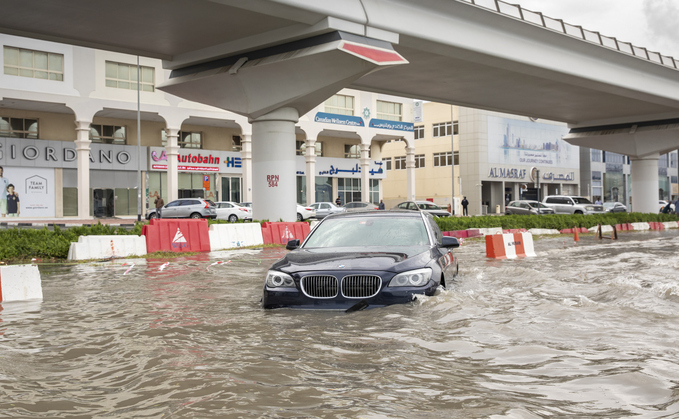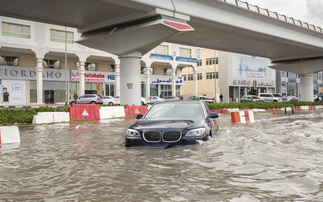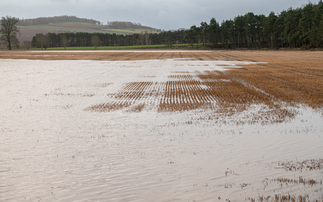Credit: iStock
Yet Christian Aid report also warns insured climate damages figure is highly likely to be a significant underestimate
Extreme weather has caused over $41bn-worth of damages and killed thousands of people worldwide in just the six months since nations agreed to redouble their efforts to combat climate change at the COP28 Summit late last year.
That is the sobering finding of research published today by Christian Aid, which lays bare the huge social and economic costs associated with extreme weather events such as heatwaves, flooding, and cyclones that are becoming more intense due to manmade climate change.
In the six months since the COP28 UN Climate Summit concluded in Dubai last December, the research calculates extreme weather events have caused at least $41bn of damage worldwide - although it stresses the calculation is almost certain to be a significant underestimate.
The figures cited in the research relate only to reported insured losses, and therefore do not take account of damages caused by extreme weather events to people or businesses do not have any insurance, as is often the case in many of the most climate vulnerable nations.
Moreover, Christian Aid stressed the human cost of these climate-driven disasters is also missing from these latest figures, given the difficulty of putting a financial value on the lost lives, livelihoods, education, or economic activity that result from extreme weather events.
"This year we've seen communities across the world struck by cyclones, inundated with flooding and baked by terrible heatwaves," said Fiona Nunan, professor of environment and development at the University of Birmingham.
"The economic and social harm they have caused is clearly huge. This extreme weather is to be expected unless the world takes urgent action on rising greenhouse gas emissions. These events highlight the need for much more adaption finance to help ensure communities are better prepared and more resilient to these kinds of shocks."
The report shines a light on four major extreme weather events to have hit countries in the past six months, all of which were made more likely to occur due to greenhouse gases emissions from human activities.
These include floods in Brazil which killed at least 169 people and caused an estimated $7bn of damage to the country's economy. The floods were made twice as likely by climate change, according to Christian Aid.
Flooding in south and southwest Asia this year was also estimated to have caused at least $850m in insured damages in the United Arab Emirates (UAE) alone, in addition to killing at least 214 people, the report notes.
Floods from cyclones in east Africa, which were made around twice as likely to occur by climate change, also killed an estimated 559 people, the report states.
At the same time, searing heatwaves across Asia are estimated to have killed over 1,500 people in Myanmar alone. The report warned heat-related deaths remain notoriously under reported in many countries.
The findings come as the second week of crunch global climate talks get underway in Bonn, Germany, where negotiators are attempting to secure agreement over how to ramp up the new 'Loss and Damage Fund' and catalyse increased flows of climate finance into developing economies.
Discussions surrounding Loss and Damage were a major sticking point in COP28 UN climate talks last year, and pressure is mounting on wealthier nations to agree to an ambitious deal to increase climate finance for developing and climate vulnerable nations worldwide.
Mariana Paoli, Christian Aid's global advocacy lead, said the worrying figures on the scale of extreme weather-related costs already being faced by poorer nations underscored the need for richer countries to provide more support - both financial and practical - for lower income, climate-vulnerable nations.
In addition, she called on global leaders to put a stop to the expansion of fossil fuels worldwide and instead focus on ramping up renewables and climate resilience, or face significantly higher climate-related costs in the future.
"We cannot heal the burns caused by the climate crisis while we are still throwing fossil fuels on the fire", she said. "We need rich countries who are largely responsible for causing the climate crisis to massively scale up funding for action on climate change. They need to show real creativity and political will, and tax polluters and the super-rich in order to finance real climate action.
"We need to cancel historic debt owed to rich countries by poor ones, and instead make sure that that money is used to improve climate equality, to help everyone to be safer from climate disasters."
You can now sign up to attend the fifth annual Net Zero Festival, which will be hosted by BusinessGreen on October 22-23 at the Business Design Centre in London.











